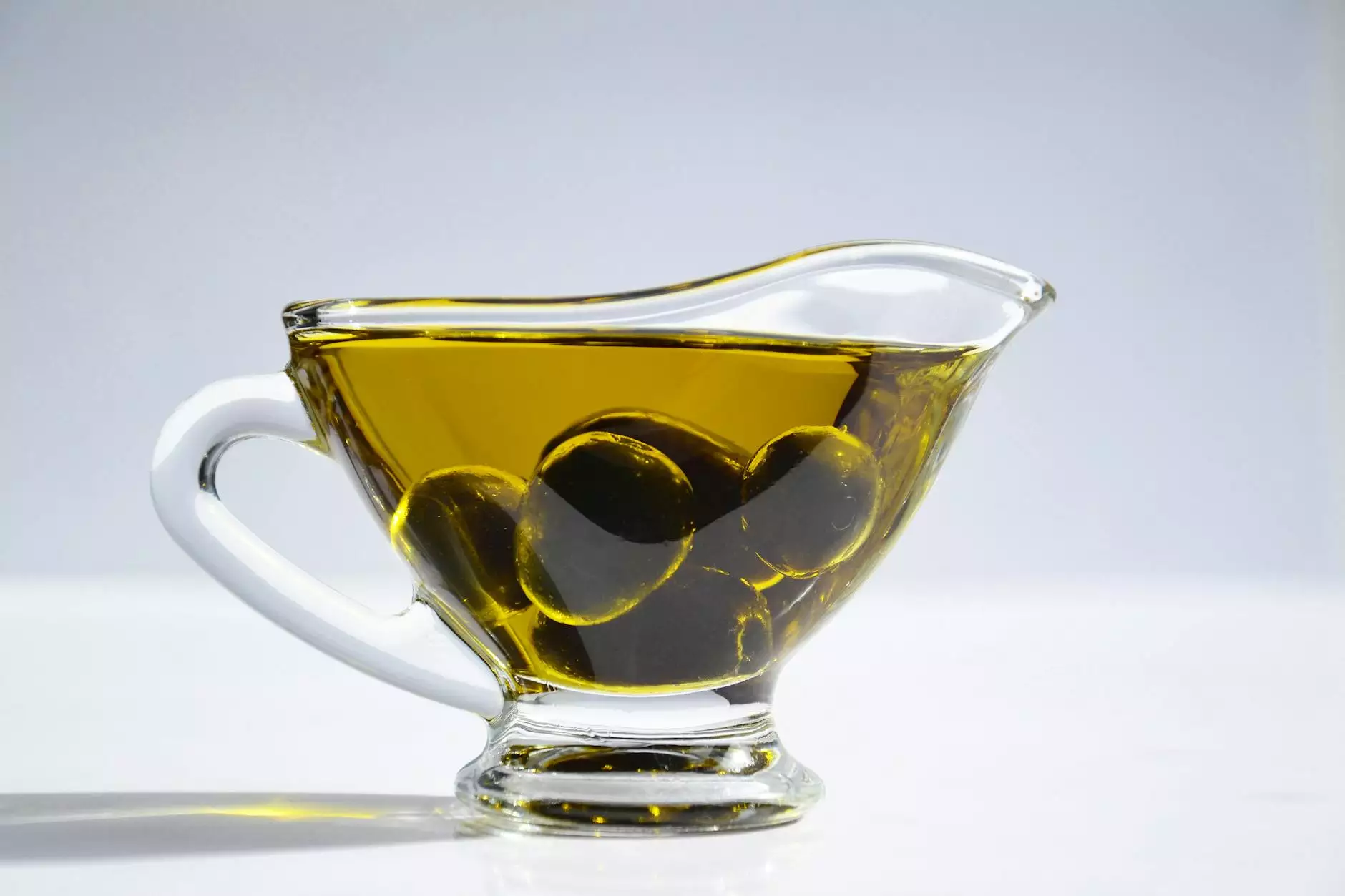Recycle Cooking Oil: A Comprehensive Guide

Welcome to FestivalsBazar's comprehensive guide on recycling cooking oil. In this article, we will provide you with valuable information on how to properly dispose, reuse, and recycle your used cooking oil. By following these guidelines, you can make a positive impact on the environment and contribute to sustainable waste management practices.
The Environmental Impact of Improperly Disposed Cooking Oil
Improper disposal of cooking oil can have detrimental effects on the environment. When poured down the drain or disposed of in regular trash bins, cooking oil can clog pipes, contaminate water sources, and harm aquatic life. It is essential to adopt responsible practices to minimize the environmental impact of used cooking oil.
Proper Disposal Methods for Used Cooking Oil
1. Allow the oil to cool: After cooking, let the oil cool down completely. Handling hot oil can be dangerous and increases the risk of splattering or burns.
2. Transfer to a sealable container: Once the oil has cooled, pour it into a heat-resistant container with a tight-fitting lid. Glass jars or plastic containers specifically designed for storing oil are ideal choices.
3. Freeze and dispose with solid waste: If you have a significant amount of used cooking oil, you can freeze it in the container. Once solidified, discard it with your regular trash. Make sure to place the container in a sealed bag to prevent leaks or spills.
4. Local recycling programs: Many communities have specialized programs that accept used cooking oil for recycling. Check with your local recycling center, waste management facility, or municipality to find out if they offer specific collection points for cooking oil.
Reuse Ideas for Cooking Oil
1. Biodiesel production: Used cooking oil can be converted into biodiesel, a renewable fuel source. Several organizations and facilities specialize in collecting and processing used cooking oil for biodiesel production. Consider donating your oil to these initiatives, helping reduce reliance on fossil fuels.
2. Composting: If you have a compost pile, consider adding small amounts of used cooking oil to it. However, be careful not to overdo it, as excessive oil can disrupt the composting process and attract unwanted pests.
3. Seasoning cast iron cookware: Cooking oil can be used to season cast iron pans and pots, creating a non-stick surface and enhancing their longevity. Apply a thin layer of oil to the cookware and heat it on low heat for about an hour. Allow it to cool, then wipe off any excess oil.
Benefits of Recycling Cooking Oil
1. Reduction of landfill waste: By recycling cooking oil, you reduce the amount of waste that ends up in landfills. This, in turn, helps conserve valuable landfill space and minimizes the release of harmful greenhouse gases.
2. Renewable energy generation: When used cooking oil is converted into biodiesel, it can be used as a sustainable alternative to traditional fossil fuels. Biodiesel emits fewer greenhouse gases and pollutants, contributing to a greener and cleaner energy sector.
Proper Storage of Unused Cooking Oil
When not recycling or reusing cooking oil, it is essential to store it properly to maintain its quality and prevent spoilage. Follow these tips:
1. Cool and filter: Allow the oil to cool down after cooking, and strain it through a fine-mesh sieve or cheesecloth to remove any food particles or debris.
2. Store in an airtight container: Transfer the filtered oil to a clean, dry, and airtight container. Ensure that no air can enter, as oxygen can cause the oil to spoil more quickly.
3. Keep away from heat and light: Store the container in a cool, dark place like a pantry or cupboard. Exposure to heat and light accelerates oxidation, leading to rancidity.
Recycling Cooking Oil Safely
While recycling cooking oil is beneficial, it's important to handle it safely. Follow these safety precautions:
1. Avoid using plastic bags: Plastic bags may not be suitable for containing hot or warm cooking oil, as they can melt or leak. Instead, opt for heat-resistant containers with secure lids.
2. Allow the oil to cool: Always ensure that the cooking oil has cooled down before transferring or disposing of it. Hot oil can cause burns or melt containers not designed for high temperatures.
3. Protect against spills: To prevent spills or leaks during storage or transportation, secure the container with a tight-fitting lid and place it in a sealed bag or secondary container.
By following these guidelines, you can contribute to responsible waste management and help protect the environment for future generations.
Conclusion
In conclusion, recycling cooking oil is a simple yet impactful way to reduce waste and preserve the environment. By properly disposing, reusing, or recycling your used cooking oil, you can contribute to sustainable practices and make a positive difference. Remember to always follow local guidelines and regulations, and explore the various options available, such as local recycling programs and biodiesel initiatives. Together, we can create a greener and cleaner world.




